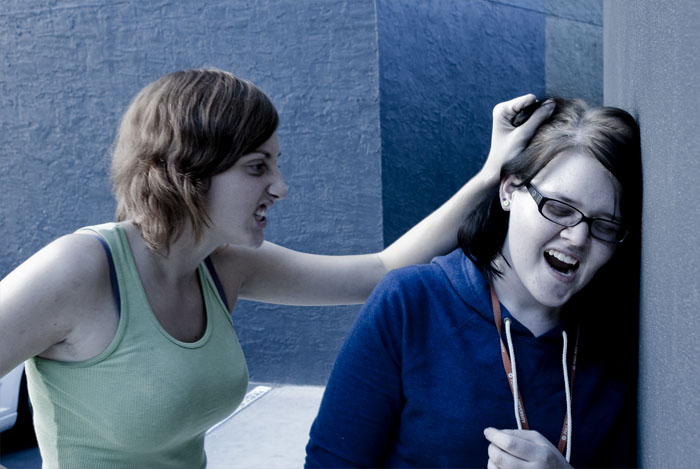Two kinds of addiction
In psychology, there are two kinds of addiction. One is substance addiction, which is addiction to drugs, alcohol, smoking, prescription medication etc. But, there is a so called process addiction, which includes people who gamble, workoholics, shopoholics etc.
Although bullying is not considered to be an “addiction” some important questions need to be asked, which indicate addiction-like symptoms in bullies. So, are bullies capable of controlling their behavior? To find out, let’s examine the definition of “Process Addiction”:
“Process addiction or Behavioral addiction consists of a compulsion to repeatedly engage in an action, although it may cause negative consequences to the person’s well-being, as well as harm other people’s physical, mental, social, or financial state.”
Bullies are likely to get addicted to other substances
Researchers from the Ohio State University indicate that one “deviant” behavior can lead to another. This means that playground and school bullies are more likely to get “hooked” on mind-altering substances. But, the reverse could also be true; youth who start using substances such as cigarettes, alcohol, marijuana, prescription pills, or illicit drugs might become bullies.
How to intervene?
1. Bullies are often unaware they are addicted to bullying, so you should talk to bullying teenagers about their actions and the consequences of their behavior.
2. Try to understand the problem. Very often, bullying behavior is caused by the absence or insufficiency of love and affection in the early years of life. Even if kids are given enough attention and care afterwards, they still may display a lifelong bullying behavior.
3. It’s easy to cure aspects of bullying addiction. Which aspects? Well, it’s not a physical problem, so it’s much more painless and quicker. Good behavioral program, group or individual meetings with a psychologist, and educational sessions can do a lot for bullies.
4. Curing bullies is hard. First, bullies need to acknowledge their behavior, accept that their actions are harmful, and become aware that they are addicted to the way they treat others. The problem is, bullies find their way of acting as normal and they don’t want to admit they are bullies.
5. By being treated with increased love and affection, some bullies may change. There is a greater success with bullies who were made aware of the psychological processes behind their behavior. But, by showing these loving emotions can substantially accelerate the process of recovery.
—–
Reference Sources:
NIDA for TEENS: Bullying hurts the bully toohttp://teens.drugabuse.gov/blog/post/bullying-hurts-bully-too
Daily News: The addictive nature of bullying http://www.nydailynews.com/life-style/health/addictive-nature-bullying-article-1.334630










0 Comments